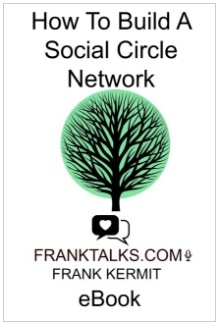|
Making Monogamy Work: Monogamy Must Be Earned By Frank Kermit *This is an excerpt of my Ebook: FRANKTALKS VOLUME 3: MONOGAMY AND NON-MONOGAMY EDITION EBOOK Monogamy can be easier than open relationships, because the rules are simpler but the application of the rules of monogamy is not as easy. Monogamy works for monogamous people however: the power of choice and the self entitlement of our current societal structure is making it more challenging for the chances that monogamous people have, of making their relationship structure work for them. The Rules of Monogamy: 1-The first rule of monogamy is that you only have sex with one other person. The first rule of monogamy is very much what most people understand monogamy to mean. It is simple to understand. Most people assume it stops there, but it does not. The second rule, is even more important, and challenging, than the first rule. 2-The second rule of monogamy is that you never do anything that would even just potentially threaten rule #1. And in those two rules chaos ensues for the wannabe monogamous couple that is not sure what a real threat to their monogamy is. The chaos comes from not being sure what a potential threat is. Now an obvious threat: someone is sexually interested in being with the person that you are monogamous with, or someone is sexually interested in being with you when you are in a monogamous relationship. That is a threat. What about a potential threat? Potential threat means you do not put yourself in a situation where the likelihood of temptation already exists. The bottom line, when you are in a monogamous relationship, any time that you are out for social reasons and extra-curricular reasons with people that you are attracted to, who have already expressed a sexual interest in you, it is a potential threat to your relationship. At the very least, it is a potential threat to your monogamy. As monogamists, you must figure out how you define a potential threat. Threats to the monogamy will not always be so obvious. Some couples may feel that using sex toys as “marital aids” help aid a challenge in the marriage while other couples may view using sex toys as a threat to their relationship. It is up to the couple to work things out, communicate and deal with their individual insecurities. BTW, you can learn more about using Sex Toys with a new lover in my Ebook NOW WHAT? UNIQUE WAYS TO CATER TO HER SEXUAL E.N.A. EBOOK There are going to be times when your partner is going to come up to you and say, "Listen, I do not want you hanging out with so-and-so anymore." Their reason is, "That person threatens our monogamy." They might not word it that way, but that is essentially what they are getting to. If you believe in the principle of monogamy, you have to listen to your partner's concern, and hopefully you can come to some sort of consensus as to what the best action is to take. I cannot tell you to completely eliminate all potential threats, because at that point, neither of you will be socializing with anybody. If you are not interacting with anyone, then that cannot be emotionally healthy either. As I teach it, you do not kill what you are trying to protect. Just as you must have realistic expectations of the relationships structure you get into, you must you have realistic perspectives on the potential threats to your monogamy. When it comes to potential threats to your monogamy, you must never be afraid to express to your partner that you see a potential threat to the monogamy of your relationship. Never be afraid to say, "That person that you are hanging out with wants to have sex with you." As monogamists, you must be ever so aware of the potential threats to your monogamy. Yes, you are going to be accused of being jealous, and yes, you are going to accused of being insecure, and yes, you might even be accused of not trusting your partner. So what? I personally feel that I would rather be accused of all those things and do what is necessary to project the monogamy of my relationship, when our intent is to be monogamous. I personally feel that a monogamist person has every right to do what it takes to protect the monogamy of their relationships. To what degree you see a potential threat is up to you. Keep in mind that no one is going to care about the importance of your monogamy in your relationship as much as you and (hopefully) your partner do. Monogamy is a work in progress, it is not a given, and can not be taken for granted One of my principles of monogamy is that Monogamy Must Be Earned. Part of the reason that monogamy must be earned is that you want to make sure you know what you want, and that you are sure that the person you are choosing is capable of giving it to you. A very big point here is that monogamy is a lifestyle. As I teach it in my 4 hours audio program lecture, MAKING MONOGAMY WORK - WHEN ONE IS ALL YOU NEED AUDIO you do not make the mistake of thinking that monogamy is just a relationship structure; think of it as a lifestyle because it permeates a lot of the decisions that you are going to make. Being monogamous means that you might even make a change in the type of profession that you choose. For example, one of the reasons that some people become unfaithful, even thought they entered a monogamous relationship with the best of intentions, but down the road they become unfaithful, is because one of the people in the monogamous relationships, or both of them, are in professions where they are working anywhere form 12 to 14 hours a day apart from each other. They just do not have the time to spend together. Over the course of year-after-year, feeling alone, being pursued, maybe feeling angry or resentful for having to work so hard to support your partner which could lead to an unhelpful sense of entitlement to having earned the little extras and then being faced with temptation can lead an originally well intentioned individual to justify getting something from an affair that they feel is no longer there for them at home. Both men and women are susceptible to going though this. It is not gender specific. If monogamy is very important to you, consider it a lifestyle that you have to support. That might mean choosing a different profession, maybe making less money, or making money is a different way so that your lifestyle does not threaten your monogamy. Frank Kermit Learn about The Hierarchy of Dating and Relationships (and how to Transition to Monogamy as a Couple) in the Coaching Workbooks: I'm A Man, That's My Job and I'm A Woman, It's My Time If you have any questions about managing the monogamy of your relationship sign up for a couples session.
0 Comments
The 7 Weird Words That Help Define Relationships
By Frank Kermit There are 7 certain words that catch many people off guard when it comes to relationships. They are: Lust, Love, Sex, Dating, Commitment, Marriage, and Monogamy. At their most literal meanings, these commonly used words are very understandable. Intellectually, most people have no problem grasping their mental understanding of those words. Lust can be defined as the sexual desire that someone may experience when attracted to someone. To enjoy lust even better check out Now What? Unique Ways to Cater To her Sexual ENA Love can be defined as an emotional attachment someone feels for another person. To make someone full in love with you learn to master their emotional needs. Sex is a physical act between people and usually refers to the act of intercourse. If you never had sex, talk to me about how to lose your virginity. Dating can be understood to refer to the process of two people spending time together with a romantic intention. Check out the NEW rules of dating. Commitment is an obligation that you make a promise to fulfill. There are ways to check if your relationship is commitment ready. Marriage can be considered a legal status you enter to define your legal standing with another individual. Before you get married, sign up for marital coaching. Monogamy is a term to describe a dynamic where you have sex with only one particular person and refuse to have sex with others. Learn the basics of monogamy and non-monogamy. The issue with these particular words is that people may directly associate a word on the above list to be the equivalent of one, or more, of the others words. Even though we can define each word differently, we may make emotional connections with these particular words that cause us to substitute one word on the list for the other words. For example, a person may feel that marriage is the exact same thing as monogamy. A person may feel that having sex with someone means having someone's love. A person may even feel that simply dating someone for a few casual coffee dates automatically implies a deep commitment. A person may assume that the more lusty attraction they feel for someone, the more they are in love with that person. This is what makes these certain 7 words intriguingly weird. These words, which intellectually can be understood to be clear and separate, get muddled through multiple shades of gray on deeper emotional levels. It is the realistic person that does not assume commitment when dating, until that commitment is earned and publicly stated. It is the emotionally mature lover that grasps that having sex or lust for someone is not necessarily an expression of any loving attachment beyond the attraction nor physical act. It is the millions of happily married couples in the swinger lifestyle who will attest that being married does not equate monogamy. The understanding that each of these words is unique and separate from the other words is a key ingredient to the beginning stages of getting your love life in order. It is a part of the self-actualization process and achieving clarity in relationships that a person must come to terms that each word does not mean exactly the same thing as any of those other words. One of the best ways to fully grasp this first step concept is to ask yourself if you can experience any one of those terms, without experiencing any other of those terms. For example, is it possible to be in a marriage that is devoid of lust, love, sex, having dated, commitment, or monogamy? The answer of course is yes. There are loveless marriages, sexless marriages, arranged marriages that never involved dating, marriages of convenience where the couple are married but simply are not commitment to each other beyond some kind of materialist exchange, and there are married couples that are non-monogamous where the couple, individually or together as a couple, engage in open consensual sex with other people. This is not about infidelity nor cheating, as there is neither deception nor lying, as both partners of the couple are involved and consenting in the extra-marital sex. Marriage can exist completely independently of all those other terms. This is an example of the clarity that is required to properly handle your relationship mismanagement behaviors. If you want to fully figure out where you might be making incorrect word associations when it comes to your relationship expectations, go through each word and write out if the one word could exist without any of the other words in association. This exercise can be a revelation to some people, and reality shattering for others. You must never assume that other people will interpret those 7 words the same way you do; that is what makes them weird. These words are some of the most commonly misunderstood words when wrangling with relationships, and at the same time these are the same words that are significantly used in correlations to define what is a relationship. If you want to learn more about how to understand and master your dating and relationship skills: Learn more about self awareness and self actualization by checking out the coaching workbooks For Men: I'M A MAN THAT'S MY JOB WORKBOOK EBOOK For Women: I'M A WOMAN, IT'S MY TIME EBOOK Learn the Complete The Emotional Needs Mastery System Check out the Benefits of COACHING Video  For the record, I have stated many times that I do not have a preference for either Monogamy or Non-Monogamy. They are both relationship structures, and one is not better than the other. They are just different. The key is to find what the best relationship structure is for the individuals involved. Dear Readers, welcome to my 24th book.
Frank Talks: Articles Volume 3: The Monogamy and Non-Monogamy Edition I decided to do something different with this volume of my collected articles series. In the previous two volumes of FrankTalks: Articles Vol 1 and Vol 2, I collected articles that I had written for different newspapers, magazines and online new sites into collected volumes. The articles were always on a variety of topics, and it gave new readers to my work a taste of the different areas of my expertise. This volume is a little different. A few years ago I created a series of newsletters with a particular target audience in mind. When I restructured my coaching business, the multiple newsletters were discontinued, and there I was with multiple articles in my archives on specific subjects. I have included some of those newsletter articles as bonus sections in some of my eBooks, as well as publishing them on my FrankTalks.com Blog. Recently I decided that I had more than enough content on the topics of Monogamy and Non-Monogamy to put together a special edition volume of my FrankTalks Articles series of eBooks. This edition is NOT a collection of articles on a variety of subjects; it is about two very inter-linked subjects for the interested reader. The articles in this edition were written as extensions of my Audio programs: ‘Making Monogamy Work- When One Is All You Need’ ‘Alternative Relationship Choices: Non-Monogamy’ This 3rd edition of FrankTalks Articles series is the companion eBook to those Audio programs. Since this eBook is the companion book to the previously mentioned Audio programs, I have included articles from previous volumes of FrankTalks Articles, as well as excerpts of any writings to do with Monogamy and Non-Monogamy from my Coaching Workbooks for Men and for Women. This eBook gives the reader a sample of my teachings in this area. For the record, I have stated many times that I do not have a preference for either Monogamy or Non-Monogamy. They are both relationship structures, and one is not better than the other. They are just different. The key is to find what the best relationship structure is for the individuals involved. A Monogamous person does not function well in a Non-Monogamous relationship. A Non-Monogamous person does not function well in a Monogamous relationship. It is about people finding out what relationship structure works best for them on an individual level. It requires a level of self-awareness that the average person does not seek out. The average person takes what is given to them, and many do not question the status quo until a situation comes up that they did not anticipate that causes them to start asking questions. This eBook is to help the questioning beginner find some answers. Lastly, I have include a short section on Couples in Transition, for already established couples who are contemplating changing their relationship structure, because education of this nature is not just for single people. I hope that you enjoy this book, and that it helps you achieve whatever your relationship goals are. Frank Talks: Articles Volume 3: The Monogamy and Non-Monogamy Edition -Frank Sexually Incompatible Couples
By Frank Kermit Sex is not the most important thing in a relationship. However, couples who love each other dearly and connect on so many levels, but whom are sexually incompatible tend to find that sex can be at the core of a number of their issues. It is not easy to want to build a relationship with someone that simply does not connect with you well sexually. Those couples who face this situation often cite the fact that in every other way the person they are with is truly their best option and is the person they want to build a future with. Acceptance is one of the ways to deal with this situation, however it is easier said than done. This involves simply accepting your partner as is, without the desire to change your partner, and for you to modify your sexual tastes by attempting experiences to reprogram what it is you find sexually satisfying to be able to better connect to your partner on the level your partner is at. This requires a good amount of work on yourself, and can also result in some harbored feelings of resentment towards your partner, even if intellectually you can rationalize your situation. For example, it turns out your partner was sexually abused as a child, and is unable to have certain sexual experiences with you, so you simply accept that parameters and limitations of your sex life, and finds ways for you to sexually function within those boundaries. However, this option may not be easy to do, especially if there are other issues in the relationship that you may resent your partner for, which can get lumped in with (and perhaps fueled by) your sexual frustrations. Another option can be to find a compromise that would be a middle ground between you and your partner. It could just come down to the two of you taking turns about who gets their main sexual needs met each time you engage in sex. For example, if you are both very dominate personalities and like being in the dominate role, you may have to take turns being dominate so that you both get some maximum sexual satisfaction with each turn. There are couples that take the route to experiment with more open relationship structures and explore non-monogamy. This involves bringing in other people into the bedroom, or allowing a partner to satisfy certain sex needs with other people that the primary partner is unable or unwilling to satisfy. Although this can successfully work for many couples, it is not for everyone, as any non-monogamous relationship structure requires a free flow of communication between the couple and extra care to address the self-esteem of each individual in the couple as well as any other individuals that participates. For example, one member of the couple has a particular sexual fetish that the primary partner has no interest in taking part in, but allows for the member to experience it with others. It is better to have the primary partner be involved on some level (supervision, or at least in helping choose the other people involved), but depending on factors like jealousy, compersion or open mindedness, has not always proven to be needed. Whatever path you choose to attempt, always keep in mind that there is nothing wrong with you and there is nothing wrong with your partner. You are simply different, and if you are unable to appreciate that in your partner there will always be other people that want your partner as is. Never take your partner for granted. Frank Kermit Learn about The Hierarchy of Dating and Relationships (and how to Transition as a Couple) in the Coaching Workbooks: I'm A Man, That's My Job and I'm A Woman, It's My Time Couples in Transition: Monogamy and Non-monogamy By Frank Kermit Couples who are experiencing a transition in the status of their relationship may sometimes look to explore new ways of redefining their sex lives by experimenting with the boundaries of sexual permissions. This includes couples who are monogamous that are interested in exploring the terrain of the swinger lifestyle, as well as, couples who were previously non-monogamous in some way, that now want to stop any extra-circular sexual activities with others and be monogamous. Transitioning from monogamy to non-monogamy or from non-monogamy to monogamy is not always simple process. It can be challenging, because the rules for each kind of relationship are different. The mindset for monogamists is different than the mindset of non-monogamists. Also, each relationship structure faces risk factors that are not always thought of ahead of time. The main 2 rules of monogamy are (1) you only have sex with one person and (2) you never do anything that could potentially threaten rule #1. Where this gets complicated is trying to identify what exactly is a threat to monogamy. Are using sex toys, watching pornography or contact with ex-lovers threats to being monogamous? You will learn to identify which are threats to your monogamy by communicating with your partner, and finding out where your partner is comfortable. Each individual has particular boundaries, and the goal is to find a common ground about what each partner feels comfortable with while at the same time not enforcing rules that might be too constrictive which could lead to any resentment. In non-monogamous relationships the main 2 rules are (1) you can structure any kind of sexual permissions you and your partner both agree on and (2) you have to make sure that you find likeminded new partners that are capable of respecting your rules. Where this gets complicated is for the two partners to figure out what sexual permissions to agree too. It does not matter where you and your partner draw your lines in regards to sexual permissions to engage in activities with others. As long as you and your partner agree to the stipulations, it is no one else’s business. One couple may believe kissing and heavy petting with others is fine, but not intercourse. Another couple may only engage in sex with a single woman, but not engage with sex with another man or another couple. Another couple may only allow for group sex activates, but not allow for either individual of the couple to have sex with others if both partners cannot be present. Some couples may also take a lax attitude towards using condoms and encourage bareback penetration. It is no one’s business as long as you and your partner agree, and that you deal with other adults who consent to those rules. In either case, whether monogamy or non-monogamy, it is important to keep in mind that what seems like a good idea in discussion, may in fact not be a good idea in practice. For monogamy; In theory, never spending any time away from your partner which includes turning down invitations to take part in a boys’ night out, or for your cousin’s bachelorette party may seem like the right thing to do as a means to help preserve and protect the monogamy of your relationship. After all, if you eliminate any potential threats to your monogamy, you are better able to keep your monogamy intact. However, such restrictive rules may be too confining for some people, and could also be interpreted as emotionally abusive by people outside of the couple, which may result in more social hardships for the couple when having to explain why various invitations get turned down. In addition to this, there is the consideration that one or both members of the couple may even start to feel suffocated and held back in the relationship which also leads to social hardships between the couple. For non-monogamy; In theory, who your partner may decide to get sexual with outside of your primary bond should be of little concern for you, because the sex is strictly recreational and is not a threat to your relationship. However, if your partner is uncomfortable with the way you enjoy yourself with your new lover, especially if your new lover is capable of enduring certain sexual experiences that your partner does not have the stamina for, it can cause great levels of jealousy to muster. Another side effect that many people who experiment with non-monogamy tend not to be aware of: when a problem exists between how your partner relates to their new lover turns sour and they start fighting, it will actually have an effect on your own primary relationship. Few people going into it realize that when your partner breaks up with one of their lovers, it can feel like you and your partner may be experiencing the effects of a divorce as well…and you may not have even been involved in the relationship that ended! But neither relationship structure is better than the other. It is up to the couple to find the relationship structure that best works to meet their particular emotional needs and that also helps them keep what is important to them in the relationship. Simply put, you and your partner must look at what you both VALUE about the relationship structure that you are currently in, and to find ways to maintain what you VALUE about it, while at the same time find a balance with being able to explore. Both lifestyles, monogamous and non-monogamous, have their positive points and their negative attributes. Monogamy has fewer rules to understand, paternity of children is predictable, there are less people to take into consideration and there is little risk of sexual transmitted infections. However it is easier to take your partner for granted as you are not reminded of how much others may desire your partner, the restrictive rules may lead to resentment if either person starts to feel too constricted and monogamy requires work to keep building the relationship to continually be able to address each other’s emotional and sexual needs, as neither of you has the opportunity to have those needs addressed elsewhere. Non-monogamy lets the couple negotiate ways to keep sexual variety a priority in the relationship, gives the couple a chance to explore fantasies and experiences that being with just one partner could not fulfill, and can be a means to quash any incentive for infidelity or abandonment. Having a non-monogamous relationship can alleviate one partner from being asked to please the second partner in ways that that the second partner simply has no interest in. The first partner can have those experiences fulfilled by someone else, and help the second partner not feel guilty for not being interested in participating with the first partner. However whenever you involve new people into your existing love life, you also invite their personal issues. The people you may choose to associate with may not care as much about your primary relationship as you do. Sexual accidents like a condom breaking can force a couple to be very mindful of the dangers that safe sex is supposed to protect from, and you may also have to contend with your lover’s other lovers in ways you did not fully appreciate until it is too late. Commitment to your commitment is the key element in ANY transition a couple is going through. The decision to do whatever it takes to work it out and stay together It may take a long time to figure out how strict a monogamy you need to feel secure, or how freely open a non-monogamous relationship you can handle. In that time of experimenting, you must both prepare yourselves to forgive each other for the hurt you will each feel from the mistakes you both may make, and the unexpected consequences your new relationship rules may bring about. You may likely miss out on some major events that you later regret not taking part in because you were trying to establish a means of respect for your monogamy. You may end up going too far in your experimentation with non-monogamy and crossing a line that your partner and you were not clear on. Remember that this is just as much a learning journey as any, and your commitment to commitment may be the only thing that reminds you of why you entered the transition to begin with…to find a new way of staying together. Frank Kermit Learn about The Hierarchy of Dating and Relationships (and how to Transition as a Couple)
in the Coaching Workbooks: I'm A Man, That's My Job and I'm A Woman, It's My Time Figuring Out What You Want
In Dating By Frank Kermit In my work with singles that are struggling to find a serious long-term relationship, one of the challenges is to get the single person to define exactly what it is he or she wants. Many people think they know what they are looking for, or believe that when the right person comes along, they simply will feel it. Based on my experience and my practice, I have to tell you that such beliefs tend to lead people to dating the wrong partners or ending up very alone as they get older. Trying to define exactly what you want in a life partner, as well as, the kind of relationship structure that meets your needs is not as easy as some may assume. First you must balance what you think you want, and what you personally can and cannot handle. You may think you would be happy with a very socially active dating partner; however, it is only after you actually date someone who is very socially active that you come to realize that your own introverted nature and home body lifestyle, simply cannot support dating a socially active partner who is out and about most times and enjoying extrovert behaviors. Second, there is the issue of not having enough experience with dating in general. How do you know if casually dating a number of people, instead of trying for a monogamous relationship right away would make you happier? The answer is, you likely do not know, until you try and let experience teach you. When I meet with clients who struggle like this, I usually suggest that sometimes it can be easier to define what it is you do NOT want. You may not be sure if you want a monogamous relationship right away, or to casually date several people at once, or to have a primary partner with some kind of more open relationship because you simply do not have enough experience to know yourself. In fact, dating could turn out to be just a big experimental tryout until you figure it out by getting burned a few times. However, if you can list what you are sure you do not want, it can help you narrow down your choices to figure out your next immediate decisions. For example, if something you know for sure that you do not want in your future is a divorce from the other parent of your own children, then use that as a guiding principle to help you choose what you believe is the best potential learning opportunities going forward. No one-relationship lifestyle is better than another. Each one has pros and cons and can be better suited for different phases of a person's lifespan. It is about starting with your end goals, identifying what you know you do not want, and working back from that future point. This will help you decide who you should attempt to date today, and in what kind of relationship structure you should date that person. Dating can get complicated if you let it, but it does not have to be that way if you know what your end goals are, and use that knowledge to factor into the choices you make today. Frank Kermit The Ashley Madison Affair Re-thinking our relationships and the practice of monogamy By Frank Kermit Ashley Madison, a website that caters to individuals in seemingly monogamous relationships and who are looking for a discreet affair, has been hacked. This means that the discretion and secrecy promised to its membership has been compromised, with full personal information of customers now made publicly available for anyone to download them. The aftereffects, according to various media sources, include suicide of those exposed (at least two thus far attributed directly to the hack), cheating partners confessing their indiscretions to prepare partners for the fallout, a number of people targeted for extortion who are blackmailed into either paying up or having their information further exposed to family and friends, credit card cancellations to avoid illegal identity thefts, a growing number of lawsuits against the website and a big reward offered by the company that owns Ashley Madison to help catch the hackers responsible for the revelation. What is not so publicized is that not everyone uncovered in this scandal is a person in a monogamous relationship attempting to have a secret affair. Single men and women looking for casual sex with other singles do join this kind of site. Also overlooked are couples that agree to have some kind of non-monogamous relationship and find it easier to discover other open-minded individuals through a site like Ashley Madison rather than attempt to find discreet partners through other means. I wonder how some of the couples affected by this will cope. Affairs unto themselves do not necessarily end relationships. It is how a couple copes with the broken trust and how they examine the lack of fulfilling emotional needs that will determine whether or not their relationship will survive this challenging issue. In moments of crisis, we may find new opportunities to reach a level of honesty with ourselves and our partners that could put an end to behaviors of betrayal and potentially help rebuild our relationships on more solid foundations. Maybe it is time for some individuals to accept that monogamy is simply not something they are capable of or interested in pretending to exemplify anymore, or to recognize that they have taken their partner for granted and fostered extreme neglect that pushed them away. Perhaps what could be the most desirable outcome of this entire situation is that, with the right guidance, singles and couples struggling with fidelity may finally learn to be honest with others about their sexual needs and questioning whether they may or may not have neglected their partner’s needs, which led in part to their current predicament. Surely the one thing most people can agree on in the aftermath of this revelation is that, if so many people publicly identify as monogamous but aren’t actually practicing monogamy, then maybe we all need to re-think our relationships and expectations as a society regarding monogamy. One sure thing that my practice of coaching has proven time and time again is that people and relationships are much more complex than the sensationalism mass media would rather you focus on. More to the point, monogamy is not for everyone, and neither is a non-monogamous relationship. However, people can make either relationship structure work with the right partner. It takes being honest with themselves first, and learning to communicate their needs to their partners. One sure thing that my practice of coaching has proven time and time again is that people and relationships are much more complex than the sensationalism mass media would rather you focus on. While some in the public are praising the hacker group who committed this act in the name of some moral calling, I cannot help but wonder what their next target will be. Their motivation is based on what they find immoral, which means anyone doing anything that is counter to their personal code of ethics could be targeted. Will abortion clinics be next? Perhaps it will be hospital records, to reveal patient medical conditions because of some righteous stance on what diseases are more culpable to have than others, or government offices willing to file marriages (same-sex, inter-faith, inter-race, age-gap) that they disapprove of. Could we see a shaming campaign against sexually active adults who are members of regular dating websites? Perhaps disrupting legal proceedings will be next because some hackers out there feel that divorce proceedings are contrary to their code of ethics. Evidently, the hacker groups are powerful enough to carry about these threats. Something to think about if you happen to be amusing yourself with the effects of watching people’s lives unfold in the wake of the hacking of Ashley Madison. Frank Kermit |
Categories
All
Archives
June 2024
NDG Encore Singing Chorus **** Every Friday Night Dr. Laurie Betito Quotes
|
|
FRANK KERMIT MA
EXPERT RELATIONSHIP COACH HELPING PEOPLE CONNECT |
ALL COACHING IS BY TELEPHONE OR SKYPE ONLY INTERNATIONAL CLIENTS ARE WELCOME *INTERNATIONAL CLIENTS ARE RESPONSIBLE FOR LONG DISTANCE PHONE CHARGES, +1 Canada/USA* SKYPE IS PREFERRED. IT'S FREE AND EASY TO USE FROM ANYWHERE IN THE WORLD TELEPHONE: +1-514-680-3278 EMAIL: [email protected] SKYPE: frank kermit PLEASE NOTE THAT ALL SALES ARE FINAL. NO REFUNDS OR EXCHANGES
|

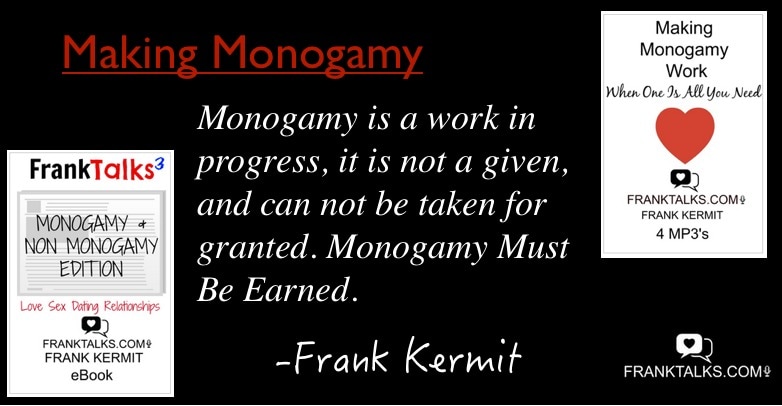
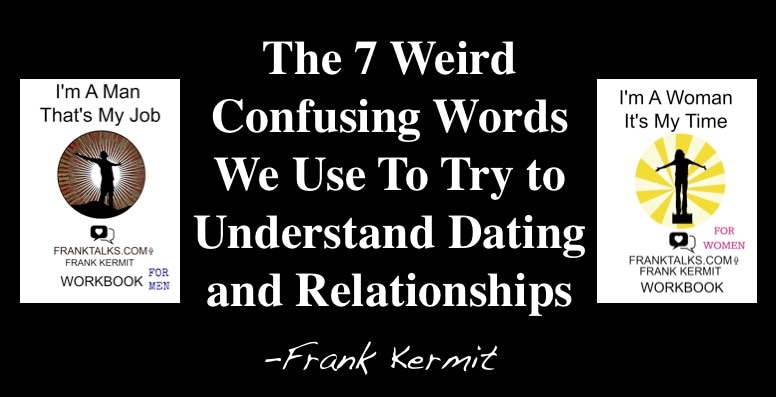

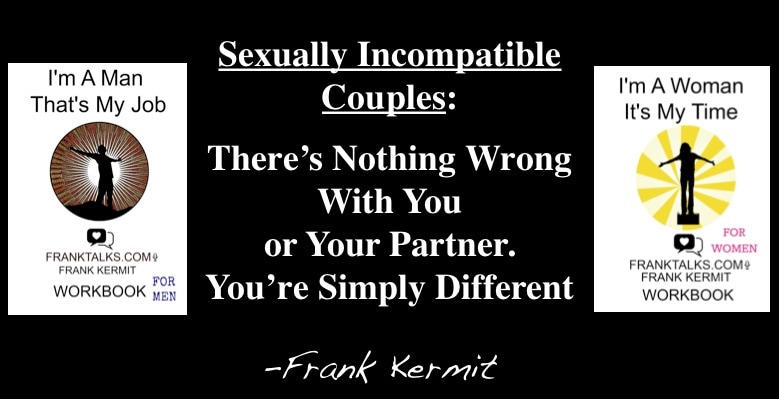
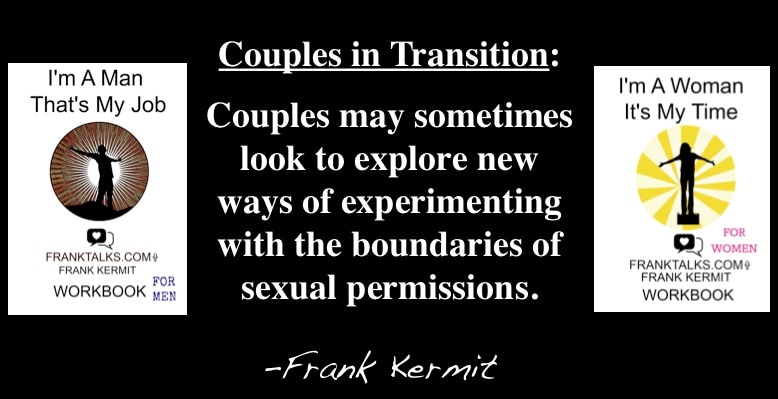


 RSS Feed
RSS Feed

























